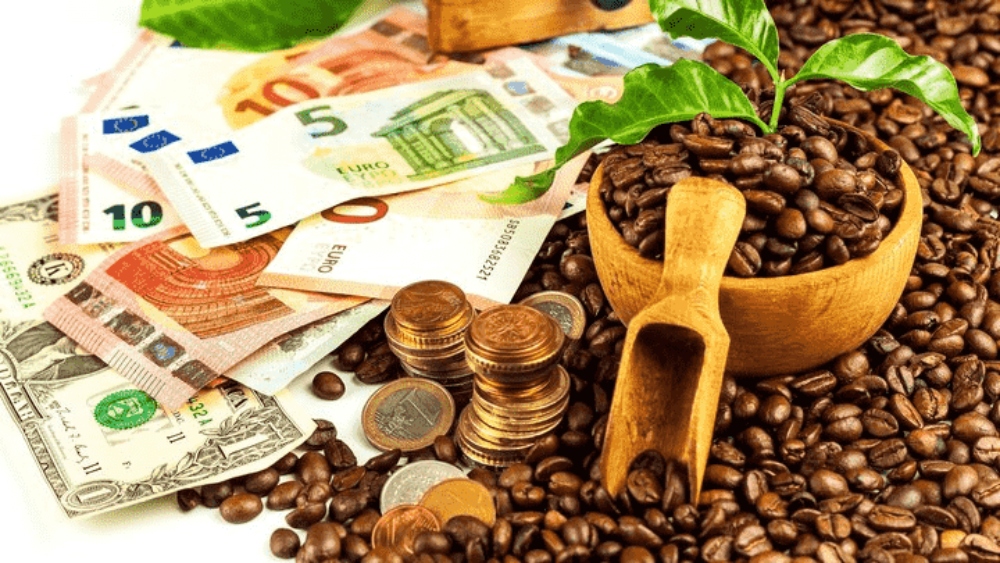Comments
- No comments found

Most politicians have used the “Ukraine invasion card” to justify the massive inflationary burst in 2021-2023.
It does not matter if inflation was already elevated prior to the war. Supply chain disruptions, demand recovery, wage growth… Many excuses were used to justify inflation, except the only one that can make aggregate prices rise in unison, which is the creation of more units of currency well above demand.
Inflationists will blame inflation on anything and everything except the only thing that makes all prices, which are measured in monetary units, rise at the same: Money supply growth rising faster than real economic output.
Supply chain disruption and commodity inflation are caused by monetary expansion: More units of currency going to relatively scarce assets. Profits, wages, or commodities are not causes of inflation, but consequences. The unit used to measure prices is weakened by massive increase of its supply. It is as if I sell apples measured in glasses of milk, and suddenly the issuer of milk puts hundreds of gallons more in the market. My apples will cost more glasses of milk to adjust to the reality of the new unit of measure.
Long-term inflation expectations have risen to 3%, the highest level in twelve years. Furthermore, according to the Bureau of Labor Statistics, in April the Consumer Price Index increased 0.4 percent, seasonally adjusted (SA), and rose 4.9 percent over the past 12 months, not seasonally adjusted (NSA). The index for all items less food and energy increased 0.4 percent in April (SA); up 5.5 percent over the year (NSA). However, commodities have plummeted in the past year.
Crude oil (WTI) is down 38% in the past year, trading below pre-Ukraine invasion level. Gasoil (-44%), gasoline (-40%), heating oil (-44%), natural gas (Henry Hub -74% and NBP -65%) have all plummeted to pre-war levels. Even wheat is down 30% from a year before June 4th, 2023. The FAO Food Price Index has also corrected to a two-year low in May.
Why do commodities plummet in the middle of the China recovery and elevated demand growth and tight supply? Monetary factors again. The massive rate hikes and the subsequent monetary contraction have impacted the internationally quoted prices of goods all over the world. It is more expensive to purchase storage, finance margin calls, hire tankers and start long positions.
If commodities and the Ukraine war were to blame for inflation, why is the consumer price index remain so elevated? Money supply growth is plummeting but not enough to revert the price expansion of 2020-2023 and, in fact, global money supply has not fallen lower than $101 trillion, according to Bloomberg. That is a significant drop in money supply from its highs, and one that justifies the rapid decline in headline inflation, but not enough to revert the price increases for consumers.
Central banks engineered the massive inflationary burst, as proven in the BIS study by Claudio Borio et al (2023) and now find that it is relatively easy to reduce annualized inflation to 4-5% but not that simple to bring it to 2%.
What no central bank wants to tell you is that the only way in which inflation will be brought down significantly is a recession. That is why they talk of a “soft landing” that is impossible if they truly wanted inflation to fall permanently.
Daniel Lacalle is one the most influential economists in the world. He is Chief Economist at Tressis SV, Fund Manager at Adriza International Opportunities, Member of the advisory board of the Rafael del Pino foundation, Commissioner of the Community of Madrid in London, President of Instituto Mises Hispano and Professor at IE Business School, London School of Economics, IEB and UNED. Mr. Lacalle has presented and given keynote speeches at the most prestigious forums globally including the Federal Reserve in Houston, the Heritage Foundation in Washington, London School of Economics, Funds Society Forum in Miami, World Economic Forum, Forecast Summit in Peru, Mining Show in Dubai, Our Crowd in Jerusalem, Nordea Investor Summit in Oslo, and many others. Mr Lacalle has more than 24 years of experience in the energy and finance sectors, including experience in North Africa, Latin America and the Middle East. He is currently a fund manager overseeing equities, bonds and commodities. He was voted Top 3 Generalist and Number 1 Pan-European Buyside Individual in Oil & Gas in Thomson Reuters’ Extel Survey in 2011, the leading survey among companies and financial institutions. He is also author of the best-selling books: “Life In The Financial Markets” (Wiley, 2014), translated to Portuguese and Spanish ; “The Energy World Is Flat” (Wiley, 2014, with Diego Parrilla), translated to Portuguese and Chinese ; “Escape from the Central Bank Trap” (2017, BEP), translated to Spanish. Mr Lacalle also contributes at CNBC, World Economic Forum, Epoch Times, Mises Institute, Hedgeye, Zero Hedge, Focus Economics, Seeking Alpha, El Español, The Commentator, and The Wall Street Journal. He holds a PhD in Economics, CIIA financial analyst title, with a post graduate degree in IESE and a master’s degree in economic investigation (UCV).
Leave your comments
Post comment as a guest